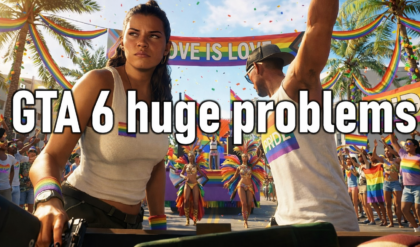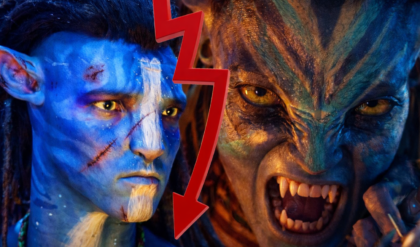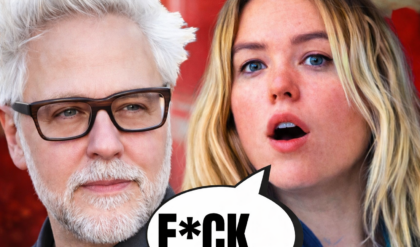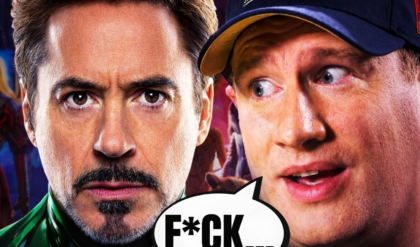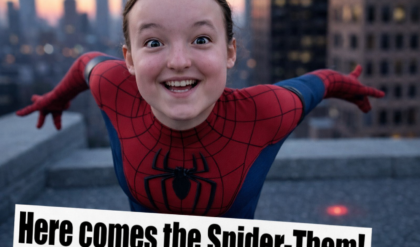In an unexpected twist that’s set the gaming world ablaze, Nintendo of America President Doug Bowser has reportedly told less affluent fans to “stop hating” on the price of the upcoming Nintendo Switch 2, suggesting they stick with the original Switch if they can’t afford the upgrade. The comments, which surfaced in early April 2025 amid buzz about the Switch 2’s June 5 release, have ignited a firestorm of debate across social media, gaming forums, and YouTube. With the new console priced at $449—$150 more than the original Switch’s launch tag—Bowser’s remarks have been interpreted by some as dismissive, even elitist. But is this a case of tone-deaf corporate speak, or a pragmatic stance twisted by sensational headlines? Let’s unpack the controversy rocking Nintendo’s fanbase as of April 9, 2025.
The Switch 2 Reveal: A Premium Price Tag
The Nintendo Switch 2 was unveiled on April 2, 2025, promising a leap forward from its predecessor, which sold over 150 million units since 2017. Boasting a larger screen, enhanced Joy-Con controllers with mouse-like functionality, a custom Nvidia chip, and 256 GB of storage, the Switch 2 aims to blend handheld and home-console gaming with unprecedented power. Set to launch globally on June 5 for $449 (or $499 with Mario Kart World bundled), it’s a significant jump from the original’s $299 debut price. Pre-orders were slated to begin April 9 in the U.S., but Trump’s sweeping tariffs—46% on Vietnam, where much of Nintendo’s manufacturing occurs—prompted a delay as the company reassesses pricing.
The price hike already had fans grumbling. On X, users like @Dungeon00X lamented, “$80 for premium games, $90 for a Pro Controller—tariffs on top could kill sales.” Posts found on X reveal a split sentiment: some hail the Switch 2 as a “dream console” for fixing the original’s drift issues and performance woes, while others balk at the cost, especially with games jumping from $60 to $80. Into this simmering discontent stepped Bowser, whose comments have turned a pricing debate into a full-blown PR crisis.
Bowser’s Bombshell: The Quote That Lit the Fuse
The controversy stems from an interview with CBC on April 8, 2025, where Bowser addressed affordability concerns. “We recognize there are some people that may not be able to afford [the Switch 2’s] price point,” he said. “That’s why we wanted to make the other Switch platforms available.” YouTube channels like “YellowFlashGuy” seized on this, spinning it into a provocative headline: “Nintendo president tells the poor’s to stop HATING! Says they don’t need a Switch 2! Can buy old one.” X posts amplified the narrative, with @Wargamingdad21 quipping, “Can’t afford it? Fuck you poors enjoy Switch 1,” and @thicc_stick_boi echoing, “Nintendo Says Quit Being BROKE.”
Bowser’s full remarks, however, paint a less inflammatory picture. He emphasized Nintendo’s intent to support the original Switch—still selling well at 8 years old—with new games, ensuring it remains a viable option. “We believe the pricing is appropriate for the value of the machine and the gameplay experience,” he added, highlighting features like backward compatibility and enhanced performance for existing titles. Yet, the soundbite-friendly framing of “if you can’t afford it, stick with the old one” struck a nerve, especially amid economic pressures like inflation and rising rents, which X users like @Vertxcal flagged as real barriers for gamers.
The Backlash: A Community Divided
The reaction was swift and fierce. On X, fans accused Nintendo of “classism,” with @Pirat_Nation sarcastically recasting Bowser’s words as a slap to struggling families. YouTube thumbnails screamed betrayal, juxtaposing Bowser’s face with mocking captions like “Quit Being BROKE!” Reddit’s r/Nintendo flared with threads debating the optics—some called it a “PR disaster,” others defended it as a “realistic business move.” Posts found on X show a generational split: younger fans, reliant on parental budgets, felt mocked, while older, wealthier players shrugged, citing the Switch 2’s value.
Economic context fuels the outrage. U.S. inflation, though cooling from 2022 peaks, still squeezes discretionary spending, and Trump’s tariffs threaten further price hikes. Vietnam’s 46% tariff rate could add $50–100 to the Switch 2’s cost, per IPC estimates, a burden for single-income households or teens. “I could barely afford Switch 1 games,” one r/Switch user lamented. “This feels like Nintendo’s telling me I don’t matter.” The “narcissist” jab from Zegler’s West Side Story co-star Ariana DeBose (April 2 Instagram post) even resurfaced, with some tying it to Bowser’s perceived arrogance—though that’s a stretch without evidence.
Nintendo’s Intent: Pragmatism or Privilege?
Bowser’s comments, in context, align with Nintendo’s long-standing strategy. The original Switch, launched in 2017 with a 2015 chip, thrived on accessibility and a robust game library, not cutting-edge specs. By keeping it alive post-Switch 2, Nintendo mirrors past transitions—like supporting the DS alongside the 3DS—catering to varied budgets. “They’re not abandoning the 150 million Switch users,” analyst Daniel Ahmad posted on X. “It’s smart, not snobby.” The company’s fiscal reports confirm the Switch sold 2.8 million units last quarter, a drop but still significant for an 8-year-old console.
Yet, the delivery landed flat. Comparisons to Xbox’s 2013 E3 fiasco—where Don Mattrick suggested offline gamers “stick with the 360”—surfaced on ResetEra, with users noting how tone-deaf elite execs can sound. Bowser’s “we recognize” preface aimed for empathy but felt corporate, not personal, especially against a $449 price dwarfing competitors like the Steam Deck ($399) or PS5 digital ($449). Nintendo’s razor-thin console margins mean game sales (now $80) drive profit, but fans hear “buy the old one” as a brush-off, not a lifeline.
The Bigger Picture: Tariffs and Timing
Trump’s tariffs, announced April 2, 2025, complicate the narrative. Targeting Vietnam (46%) and China (54%)—key manufacturing hubs—Nintendo delayed U.S. pre-orders to “assess the impact,” per a Friday statement. Bowser told CNBC on April 7 that the $449 tag didn’t factor in these new levies, hinting at a potential increase. “We’re always assessing manufacturing options,” he said, though shifting from Southeast Asia to the U.S. could take years and billions, raising costs further. X posts from @LatinTimes fans blamed Trump, with one raging, “Worst president ever—ruining gaming too.”
The timing couldn’t be worse. Minecraft’s $301 million opening on April 4 crushed Snow White’s $168.6 million total, showing family audiences prefer affordable fun. Snow White’s flop—tied to Zegler’s controversies and Disney’s missteps—offers a cautionary tale: alienate your base at your peril. Nintendo risks the same if tariffs push the Switch 2 beyond reach, especially with Bowser’s words framing it as a luxury upgrade.
Zegler’s Shadow: A Tangential Twist
Zegler’s Snow White woes—$115 million loss, co-star shade—hover over this drama tangentially. Her April 8 NYC photos, showing exhaustion post-flop, mirror Bowser’s PR bind: both face backlash for perceived disconnect. While unrelated, the timing amplifies scrutiny on young stars and execs navigating cultural minefields. Zegler’s “narcissist” label from DeBose parallels Bowser’s “stop hating” misstep—both are accused of prioritizing self over fans, fair or not.
Nintendo’s Next Move: Damage Control or Defiance?
Nintendo’s response will shape its future. A price hike could tank pre-orders, especially if tariffs stick—X users like @WokeInfected predict a “scalping nightmare.” Dropping the price risks margins, though Vietnam’s tariff talks with Trump (noted by @r/Conservative) offer hope. Bowser could clarify his intent, emphasizing inclusivity over exclusion, but silence may deepen the rift. The Switch 2’s June launch looms, with exclusives like Donkey Kong Bananza and Metroid Prime 4 as bait—but will fans bite if they feel scorned?
A Tale of Tone and Timing
Bowser’s “stop hating” quip—real or exaggerated—tapped a raw nerve in a gaming community stretched thin by economics and expectations. Nintendo’s plan to keep the Switch alive is sound, but the messaging flopped, echoing Xbox’s 2013 blunder. As tariffs loom and Zegler’s saga simmers, this feud underscores a truth: in 2025, empathy matters as much as innovation. Whether Nintendo weathers this storm depends on listening, not lecturing—and proving the Switch 2’s worth beyond its price. The fairy tale’s not over, but the plot’s thickening fast.
